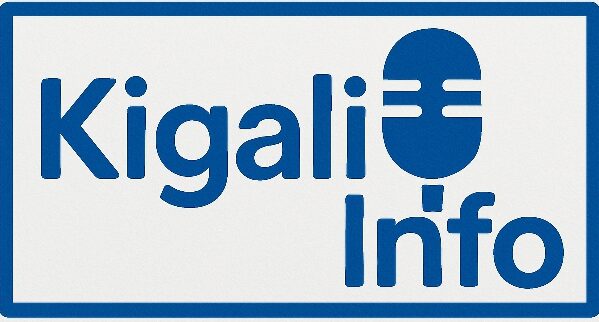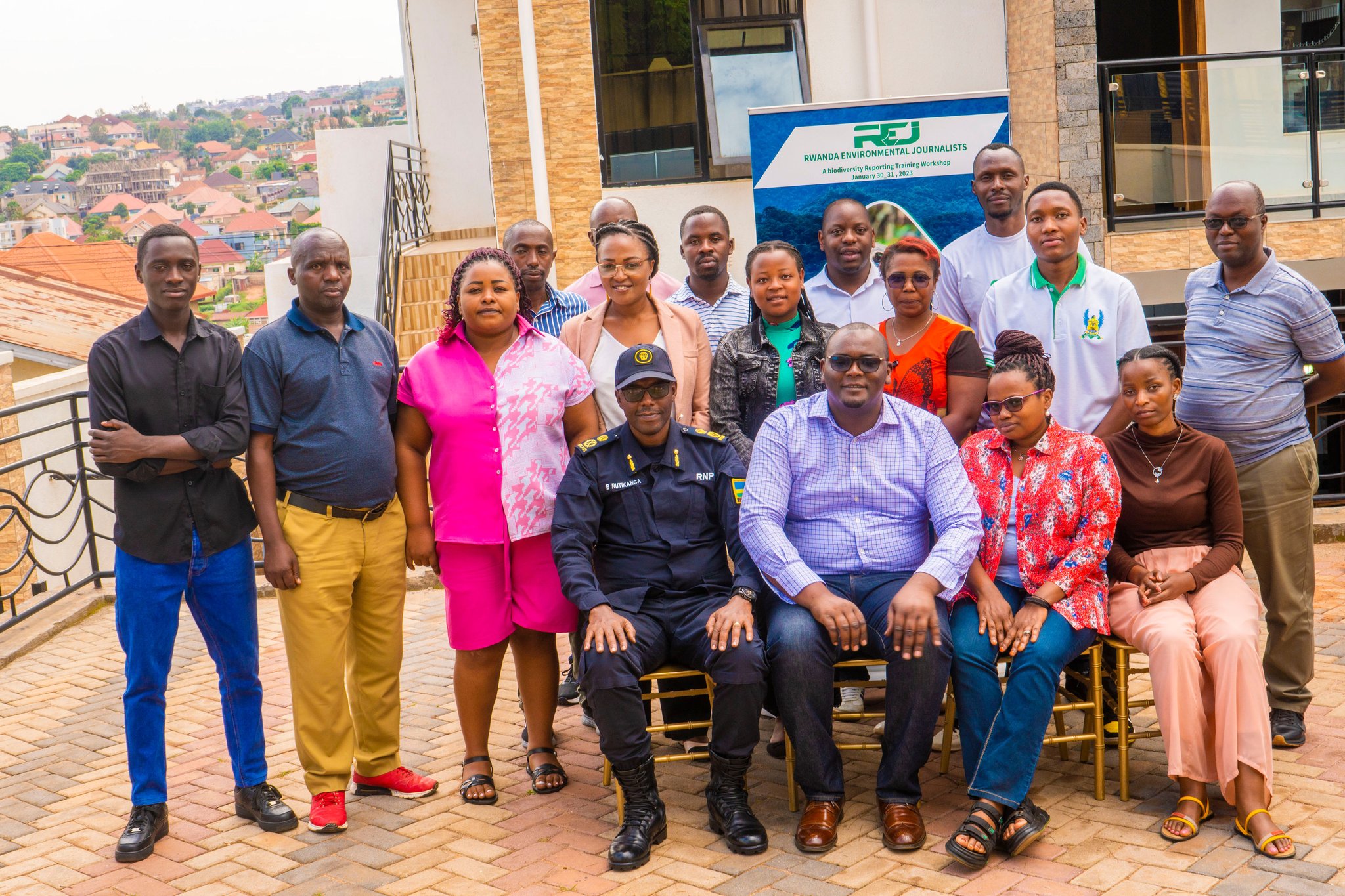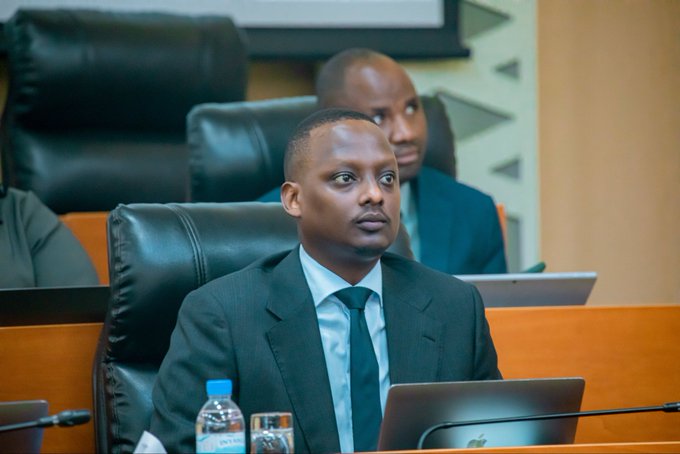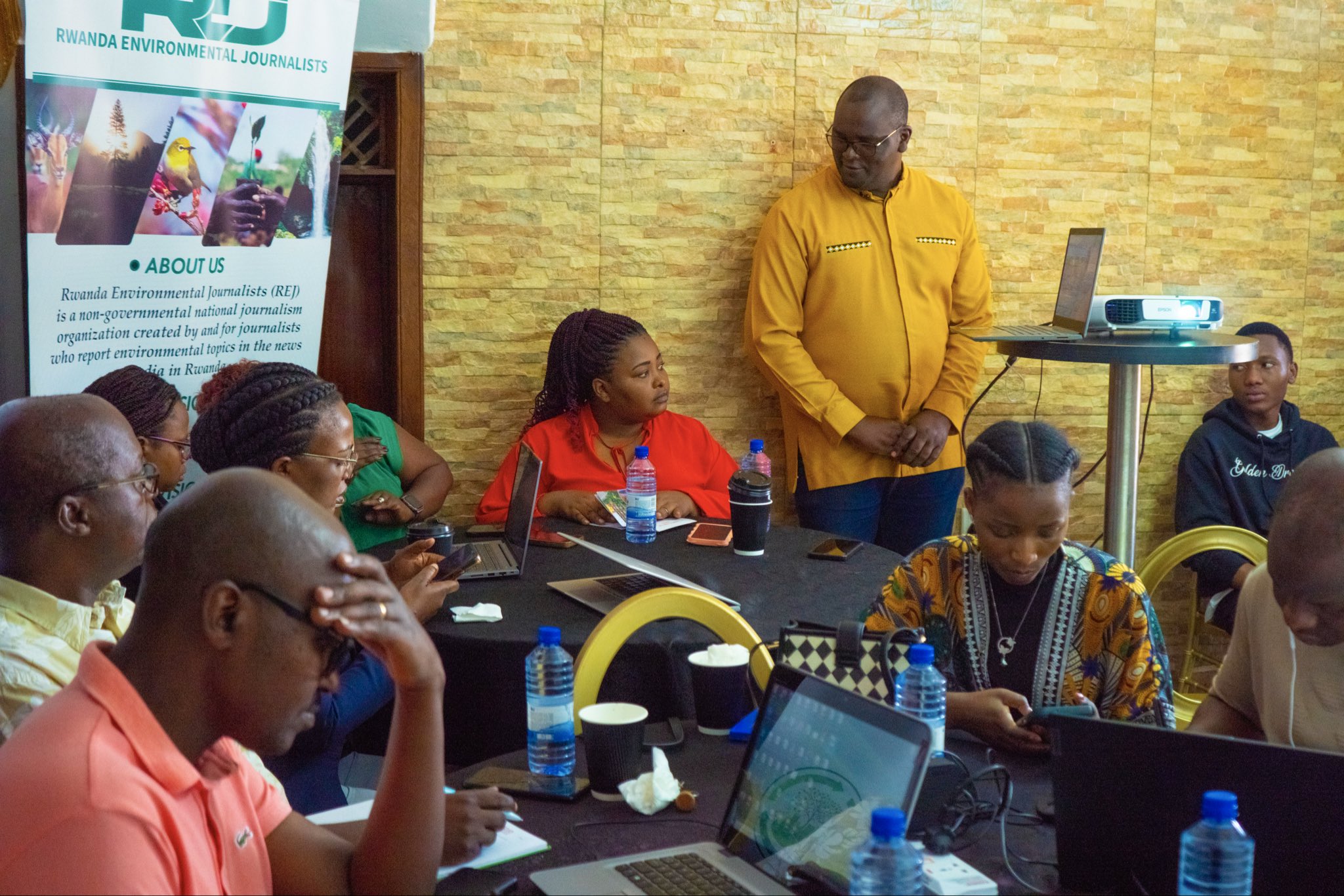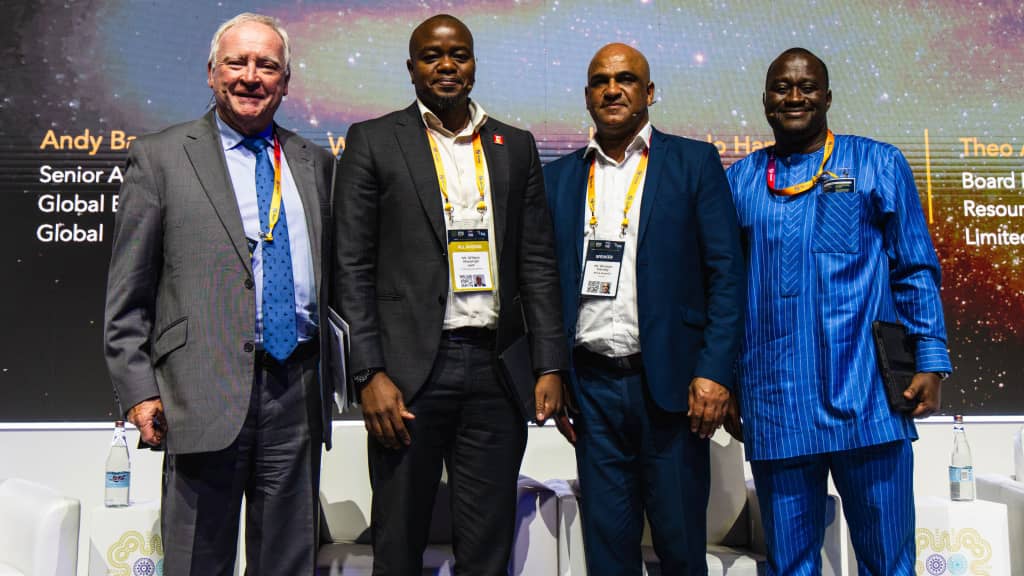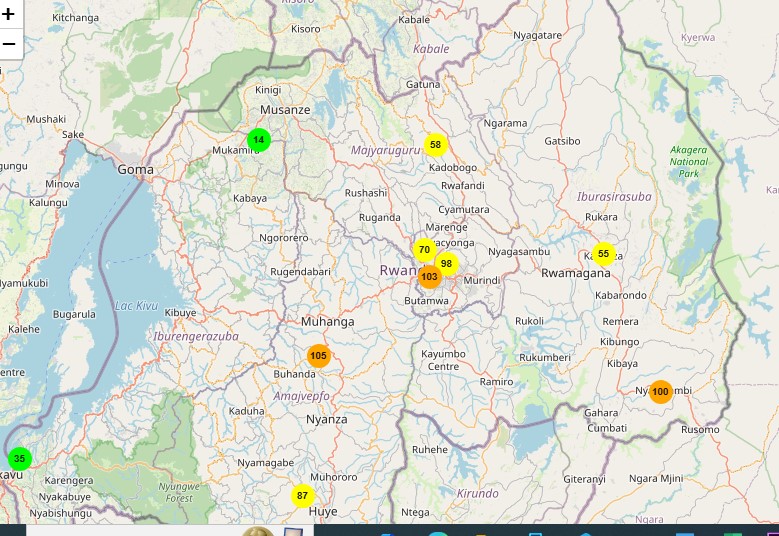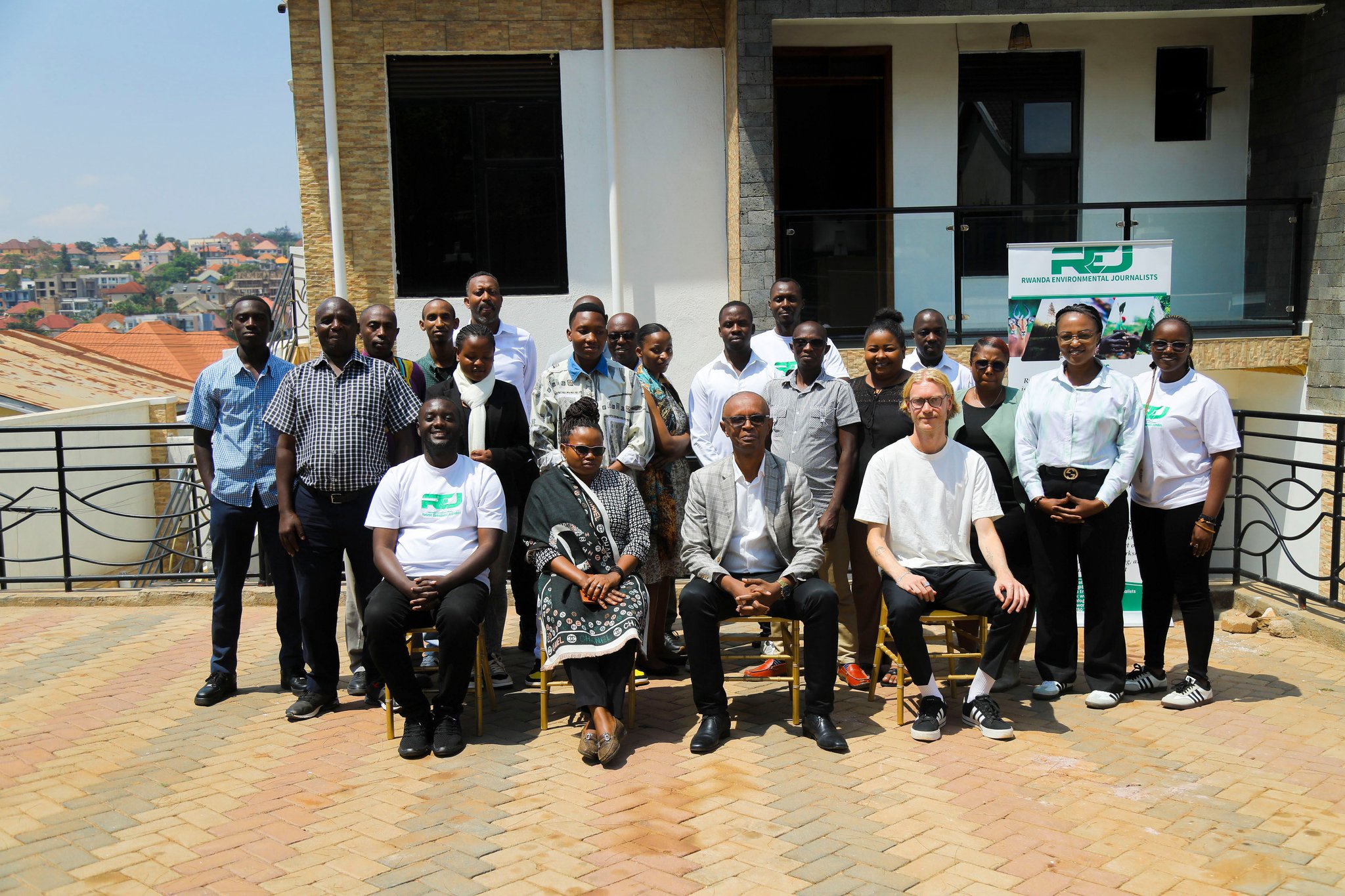
The Rwanda Governance Board (RGB) has reiterated its commitment to foster a professional and development-oriented media that can effectively serve as a bridge between science, policy, and the public in advancing Rwanda’s green economy agenda.
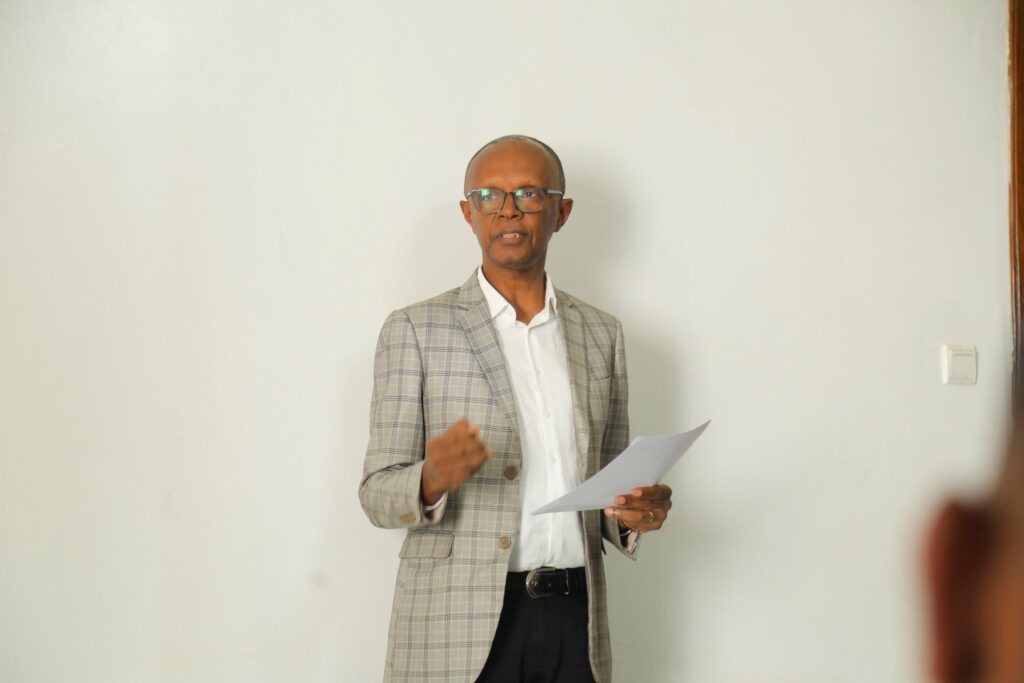
Speaking at the opening of a workshop on Science and Data-Driven Environmental Reporting in Kigali, Peacemaker Mbungiramihigo, Head of Media Policy at RGB, underscored the vital role of journalists in shaping public discourse on climate change, biodiversity, and environmental sustainability.
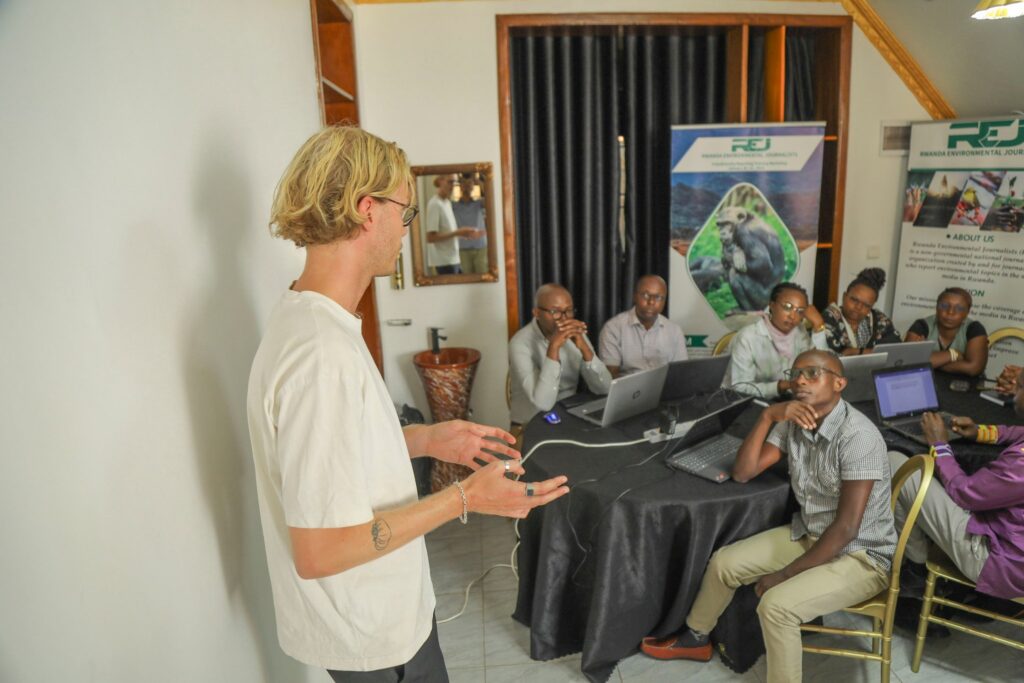
The workshop was organized by the Rwanda Environmental Journalists (REJ) in partnership with FOJO Media Institute and seeks to empower Rwandan journalists with practical skills in data interpretation, credible sourcing, and ethical reporting on environmental issues.
Mbungiramihigo commended REJ and FOJO for their collaboration, saying the initiative comes at a critical time when science-based and data-driven journalism is urgently needed. He emphasized that strengthening environmental reporting directly contributes to professionalism, accountability, and informed public engagement.
“When journalists can communicate complex environmental data in ways that are both accessible and impactful, they serve as a bridge between science, policy, and the general public. This is a powerful contribution to both civic awareness and evidence-based decision-making,” Mbungiramihigo said.
He noted that RGB’s support aligns with Rwanda’s Green Growth and Climate Resilience Strategy and its broader ambition of building a knowledge-based economy.
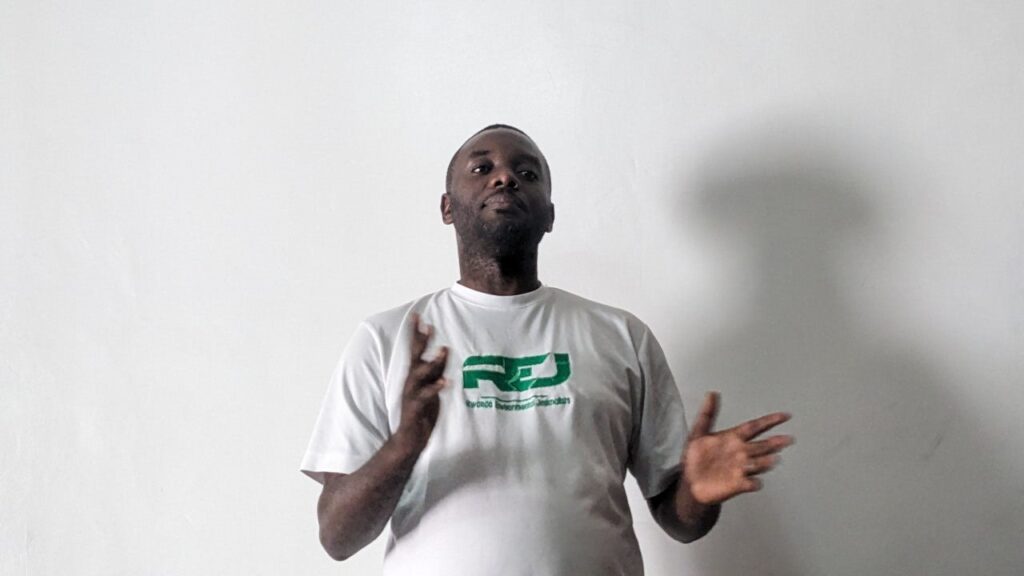
By equipping journalists with the right tools, he added, the media can enhance transparency and influence policies that safeguard the environment while promoting sustainable development.
Mbungiramihigo also encouraged participants to embrace the training with curiosity and collaboration, reminding them that their role in society goes beyond reporting events—it extends to inspiring change through responsible storytelling.
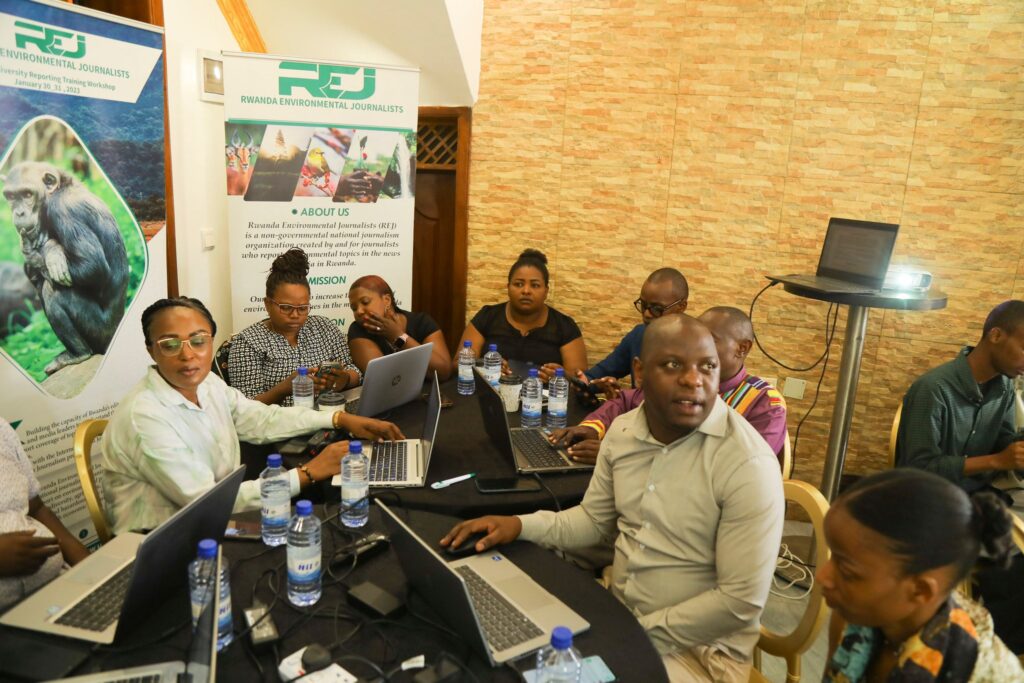
A trainer in this workshop, Jean Baptiste Ndabananiye, operating an online media outlet called lifeinhumanity.com, emphasized that Rwandan journalists will be able to act as interpreters of the complex language used by scientists, translating it into clear and accessible information that ordinary citizens can understand.
The three days training brought together environmental journalists, students, and other media practitioners, who are expected to gain practical skills to strengthen the impact of environmental journalism in Rwanda.
